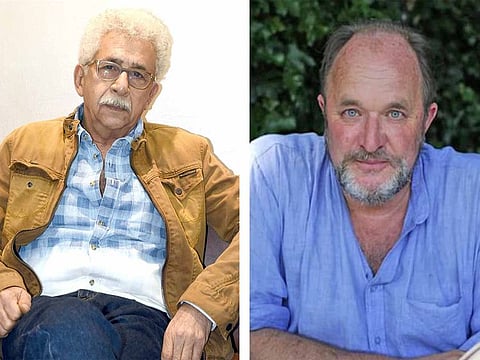The heroes who have shaped my life
I might have made his day but people like him make others’ lives

Heroes improve our lives and inspire us to constantly strive for doing better.
Among my earliest childhood heroes is Viv Richards. The legendary Caribbean batsman always left me in awe the way he walked onto the field as if he was the boss, which he was. As long as he stood there, he was in total control of the proceedings.
He was a force of nature. His swag was both believable and unbelievable — believable because it was so natural and unbelievable because it was so awe-inspiring. Three decades after his retirement, his performances carry the same impact and adrenaline value. I still regularly watch those exhilarating batting displays that destroyed the famed bowling attacks of the 70s and the 80s.
It wasn’t just a sport for him but a strong political statement for fellow blacks living under apartheid and he made no bones about it. He was gifted and he was fearless and the kind of spectacle that the cricket world never saw before or after him. I hope I’m granted the wish of meeting him someday.
There are two other heroes that I did manage to get in touch with, though: Naseeruddin Shah and William Dalrymple.
Shah is one of the greatest actors the world has ever seen. The consummate ease with which he fits into a character is a testimony to his mastery over his craft.
Like most others of my generation, I grew up on mainstream cinema but it was because of him that I developed interest in what is called as parallel cinema. His performances are spellbinding, but, for me, his heroics go beyond the cinema or the serious theatre that he does all over India.
I respect him because he isn’t scared of controversies when he speaks his mind or takes a stand on issues. He has my respect because he sides with causes and stands up to illiberal forces and speaks truth to power. He took on an entire section of the Indian media that was using actor Sushant Singh’s suicide to jack up TRPs.
Last year, I had an opportunity of interacting with him through email as I was supposed to do a piece on him. I got a little carried away and, instead of keeping it concise, I sent him an excruciating list of forty elaborate questions. Unsurprisingly, he wasn’t too amused but he responded politely. “Shabir Sahab, adaab! Thank you for taking the trouble to formulate these questions.
Answering forty questions in the detail they deserve would be equal to writing a book and I’m just not in the mood for that. Please excuse me for disappointing you,” he said. Among other things, he was also not too impressed with the tone of some of the questions. I laughed at my stupidity and overambition. Even after the polite rejection, the Shah fan in me wasn’t ready to give up.
I thought the exchange of emails would continue for a while. I saw in it the potential of Ghalib’s celebrated letters to his friends. Shah impeccably portrayed the life and times of the bard in Gulzar’s epic Mirza Ghalib. Ghalib’s letters are famous for their biting wit and humour. But my hero was in no mood to stretch it any further.
When Dalrymple came into prominence, Shah was already an all-time great. Coming from an illustrious Scottish lineage, Dalrymple is a historian, writer, journalist, broadcaster, critic and curator of remarkable merit. I was recently hooked to a bunch of his lectures on YouTube and I realised that he is gifted with both written and spoken word.
A master raconteur that he is, the breadth and sweep of Dalrymple’s knowledge, research, wisdom, clarity of thought and the articulation with which he puts it across is phenomenal. I dropped a WhatsApp message to him expressing my reverence and love for his works and how I find him so inspiring. “What a lovely message! Made my day! Thank you!” he said. I might have made his day but people like him make others’ lives.
Shabir Hussain is a senior journalist based in India



